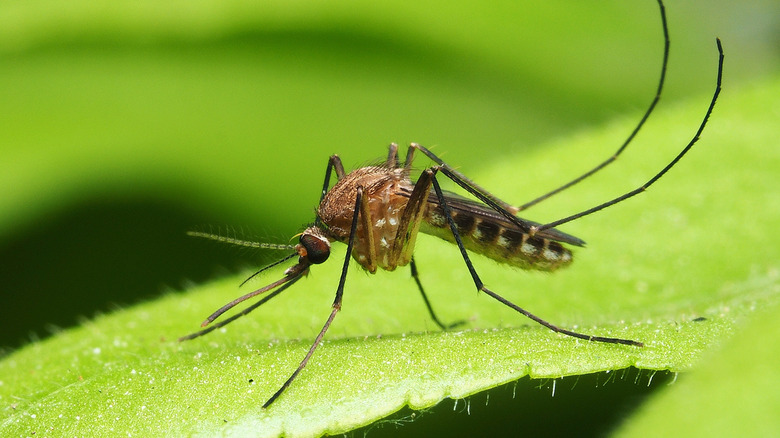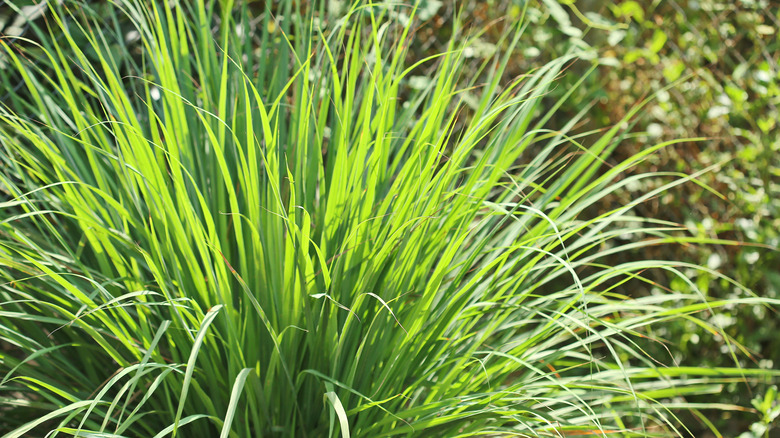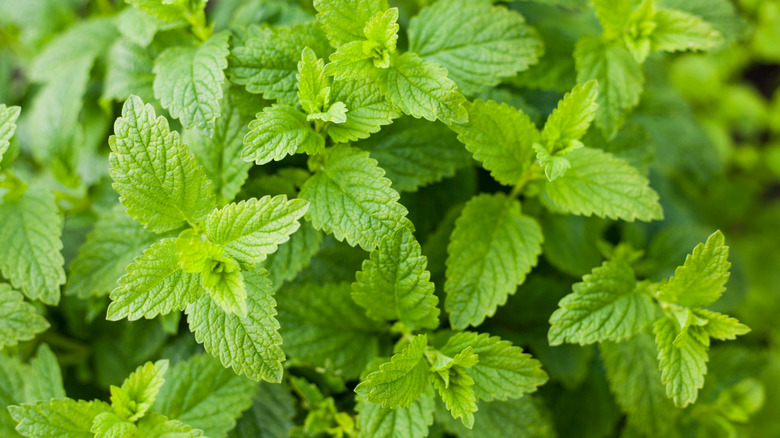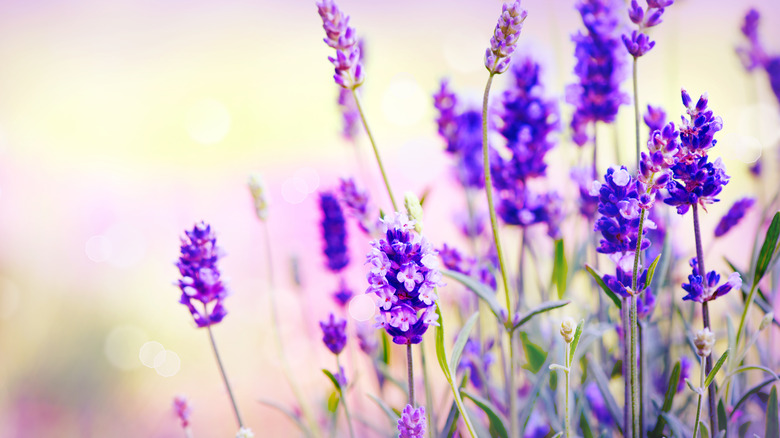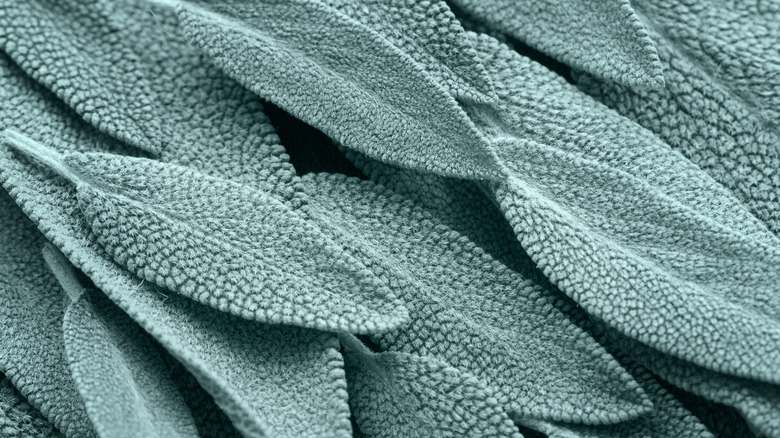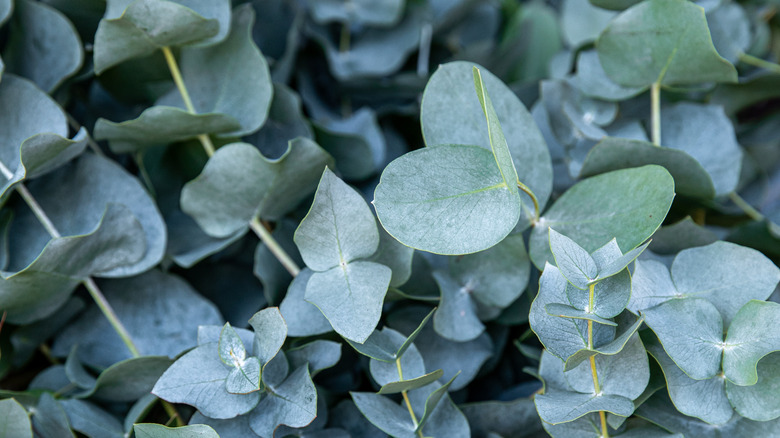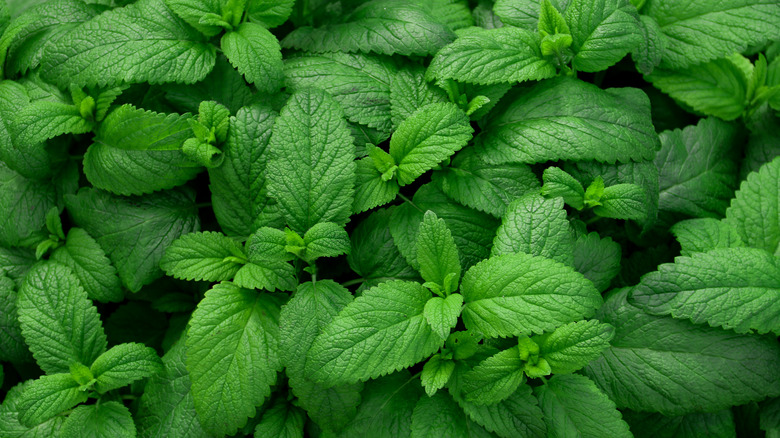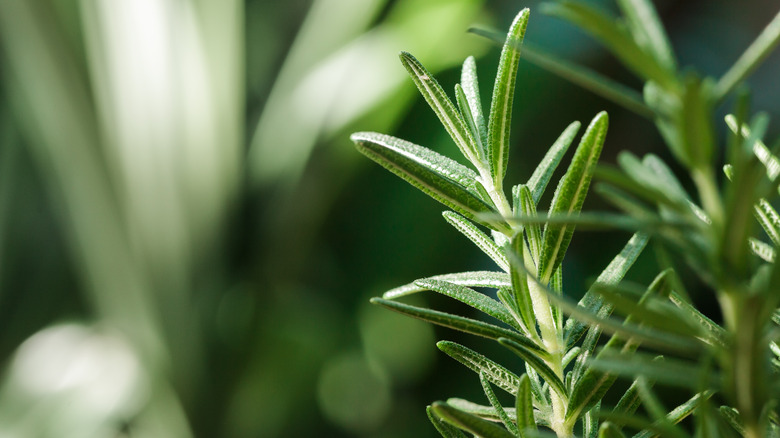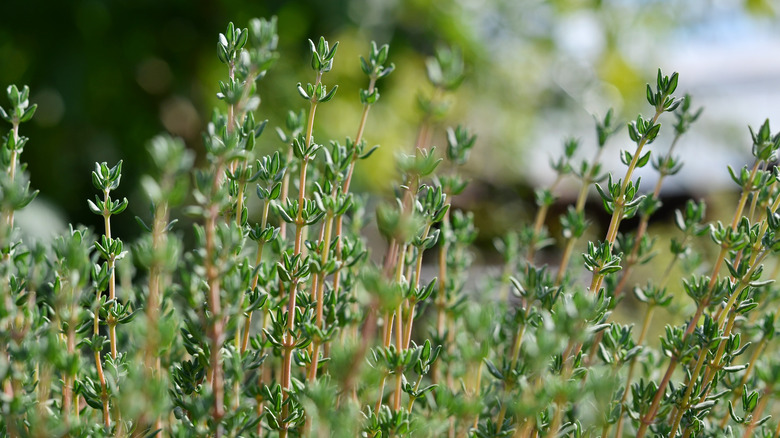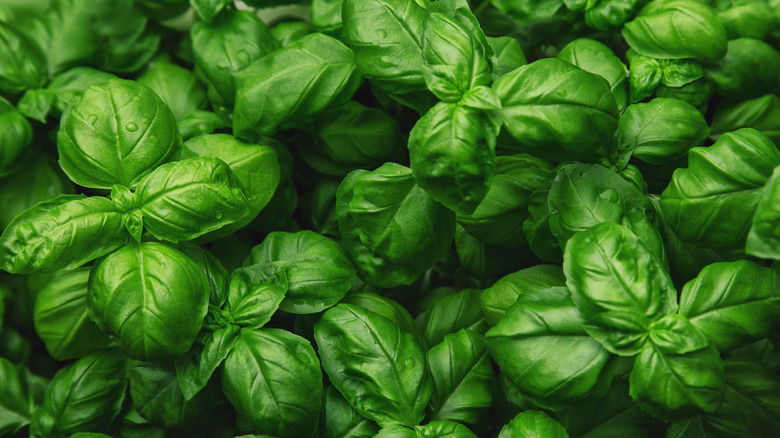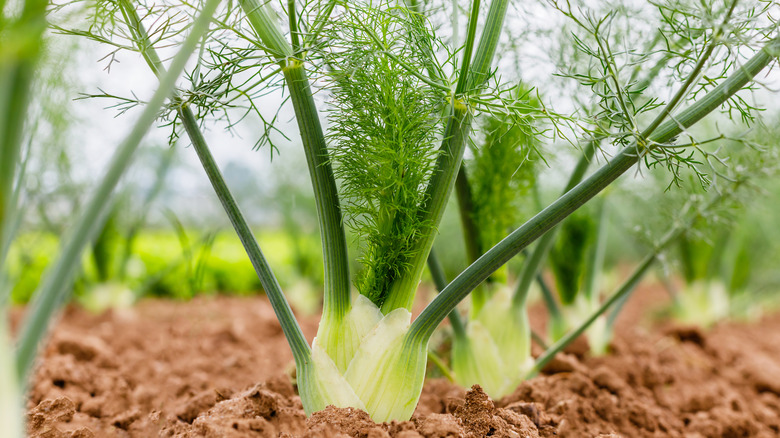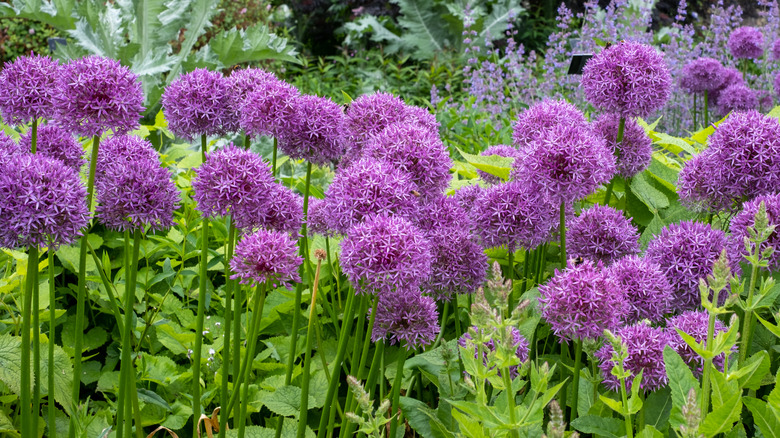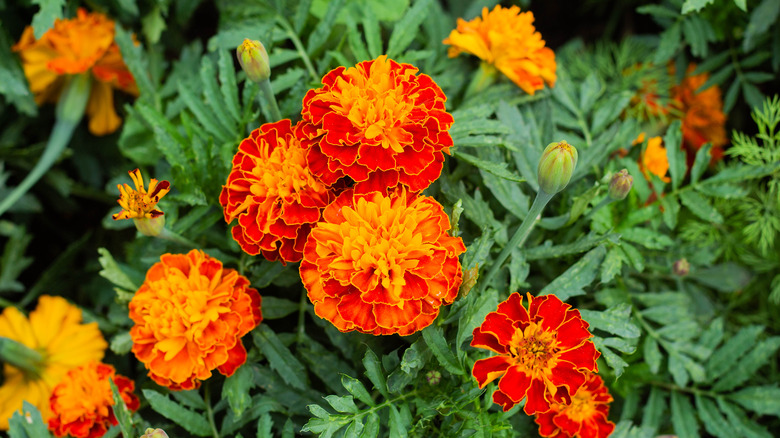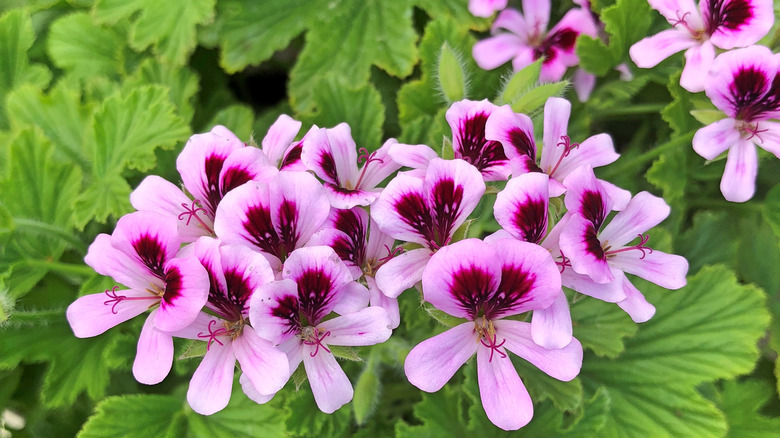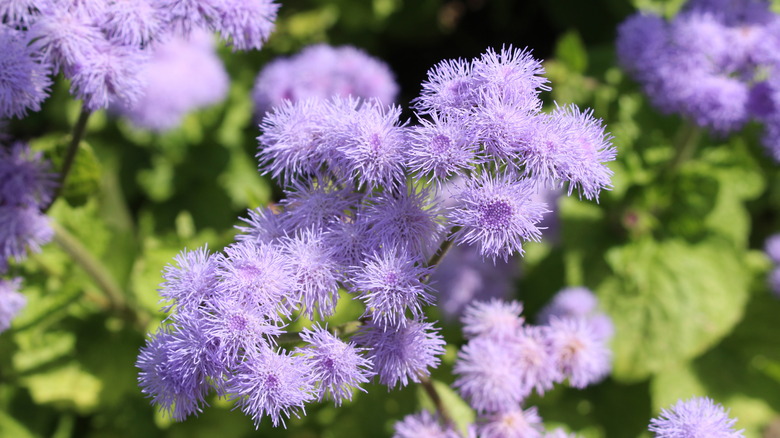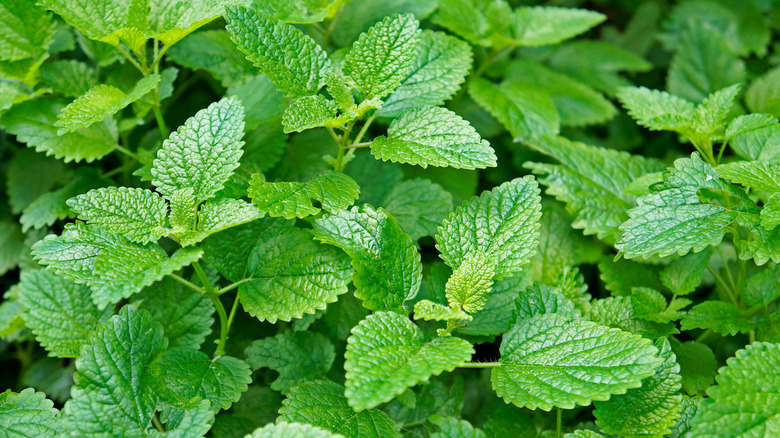15 Mosquito Repellent Plants That Actually Work
Designing your garden can be as simple as deciding what you like and becoming familiar with what will successfully grow in your area. For instance, you might love purple plants or adore red flowers. However, you might be better off opting for plants that are easy for beginners to grow or that are drought-resistant. Or, you may need plants that will keep mosquitoes away.
More than just a nuisance, mosquitoes can spread dangerous diseases like Zika virus, West Nile virus, Chikungunya virus, dengue, and malaria, according to the Centers for Disease Control and Prevention (CDC). Granted, they can also be biting menaces, leaving behind itchy bumps that are beyond uncomfortable. If your property attracts clouds of mosquitos, they can even make going outside downright impossible. But just like citronella candles, your garden can help you keep those annoying bugs at bay, letting you enjoy your summer barbecues and evenings on the porch in peace. To help you get started, check out these 15 mosquito repellent plants that work.
1. Citronella grass
You may know that citronella (scientific name Cymbopogon nardus) keeps mosquitoes away since plenty of candles with repellent powers contain it. But does it work? Well, simply growing the plant won't do it, HGTV explained. Instead, ignore the citronella flower and grab a bit of citronella grass. Then, rub it against your skin to release the oil that will keep mosquitoes away.
Bloom Season: late spring until mid-fall
USDA Growing Zone: zone 9b to 11
Growing Conditions: they can handle a bit of shade but prefer a lot of sunshine
Soil Type: well-drained
Size: 2 to 4 feet tall
2. Catnip
At first glance, catnip (scientific name Nepeta cataria) might be something you would plant for the benefit of a beloved pet. While cats are certainly attracted to it, the plant has the opposite effect on mosquitoes. Science Daily published findings from the American Chemical Society that claim it does a better job than DEET when warding off the biting bugs.
Bloom Season: late spring through fall
USDA Growing Zone: zone 3 to 9
Growing Conditions: full sun
Soil Type: well-drained
Size: 2 to 3 feet, both wide and tall
3. Lavender
Do you love the smell of lavender (scientific name Lavandula)? Many people do, which is why plenty of products feature its calming scent. But mosquitos don't find it to be particularly relaxing. Get Green Be Well explains that mosquitoes find it to be an offensive odor that they rather not be around.
Bloom Season: spring to mid-summer
USDA Growing Zone: zone 5 to 9
Growing Conditions: Garden Design explains that there are different varieties of lavender, and each requires particular conditions
Soil Type: does well in most soil types, but keep away from overly wet areas
Size: 1 to 3 feet tall
4. Sage
If you love backyard fires but hate mosquitoes, then you might want to grow sage (scientific name Salvia officinalis) in your garden. According to Garden Therapy, if you bundle up some sage and throw it into the bonfire, the smell that's produced will keep the mosquitos away. And if you need a little more help keeping those pesky bugs away, the SF Gate offers a handy-dandy recipe for making your own mosquito repellent out of sage oil.
Bloom Season: early summer
USDA Growing Zone: zone 5 to 9
Growing Conditions: full sun
Soil Type: well-drained, not wet
Size: 1 to 2.5 feet tall
5. Eucalyptus
Eucalyptus (scientific name Eucalyptus) is another plant that bugs don't love. Both the CDC and the National Library of Medicine report that oil from lemon eucalyptus (OLE) is a natural mosquito repellent. However, there is an important difference between OLE and lemon eucalyptus essential oil. The CDC notes that lemon eucalyptus essential oil hasn't been thoroughly tested, and does not recommend using it for safety reasons.
Bloom Season: mostly in summer
USDA Growing Zone: zone 8 to 11
Growing Conditions: full sun
Soil Type: well-drained
Size: from 6 feet tall and 2 feet wide to 20 feet tall and 20 feet wide
6. Peppermint
There are various kinds of mint that you can grow in your backyard to keep annoying insects away, such as peppermint (scientific name Mentha × Piperita). Peppermint wards off spiders, flies, and mosquitoes, according to Gardening Know How.
Bloom Season: from summer to early fall
USDA Growing Zone: zone 5 to 10
Growing Conditions: full sun
Soil Type: can handle most soil as long as it's not overly dry
Size: 1 to 2 feet, both wide and tall
7. Rosemary
Rosemary (scientific name Salvia rosmarinus) might be something you like to use in the kitchen, but it can also be used as a mosquito repellent. While it can be turned into a homemade bug spray, notes SF Gate, it also does the trick all on its own.
Bloom Season: late spring, early summer, or even during the fall and winter
USDA Growing Zone: zone 8 to 10
Growing Conditions: full sun
Soil Type: well-drained
Size: 2 to 6 feet, both wide and tall
8. Thyme
Thyme (scientific name Thymus vulgaris) is another plant that can be used in some of your favorite flavorful meals, but it is also a fragrant garden plant that can keep mosquitoes away. Mosquito Naturals notes that it can be used to repel a variety of flying critters, so if you're not into irritating insects, then plant some thyme around your backyard.
Bloom Season: spring and summer
USDA Growing Zone: zone 2 to 10
Growing Conditions: full sun
Soil Type: sandy or loamy, not moist or wet
Size:6 to 12 inches tall
9. Basil
While we're mentioning meal-worthy plants, basil (scientific name Ocimum basilicum) is a great option to have available in your garden whenever your dinner needs a few extra herbs. Beyond that, Happy Sprout explains that the oil found in basil can keep mosquitoes from turning you into a meal.
Bloom Season: summer
USDA Growing Zone: zone 10 to 11 or an annual in other zones
Growing Conditions: full sun
Soil Type: rich soil
Size: up to 2 feet tall
10. Fennel
While you're planting an array of edible plants in your garden, it might be a good idea to opt for some fennel (scientific name Foeniculum vulgare) as well. Research Gate explains that just like other fragrant plants, fennel is a natural mosquito repellent.
Bloom Season: summer
USDA Growing Zone: zone 2 to 4 as an annual and 5 to 10 as a perennial
Growing Conditions: full sun
Soil Type: well-drained
Size: 4 to 6 feet tall
11. Allium
There's no doubt that allium (scientific name Allium) plants are gorgeous thanks to their puffy purple flowers. However, did you know that they're a part of the onion family? Not only that, but according to the SF Gate, allium is an effective bug repellent, just like other kinds of onions.
Bloom Season: summer
USDA Growing Zone: zone 3 to 9
Growing Conditions: full sun
Soil Type: rich and well-drained
Size: up to 4 feet tall
12. Marigolds
Marigolds (scientific name Tagetes) have different effects on different critters, according to Go Pests. While bees will love to spend some time with the marigolds in your garden, mosquitoes will prefer to stay away from them as much as possible. That's because the flowers produce pyrethrum, which is a substance used in many commercial repellents.
Bloom Season: throughout summer and into fall
USDA Growing Zone: zone 2 to 11
Growing Conditions: partial or full sun
Soil Type: sandy or loamy
Size: depends on the type of marigold
13. Scented geraniums
If you have scented geraniums (scientific name Pelargonium) in your garden, you'll enjoy more than just their sweet smell. You'll also appreciate the fact that they repel mosquitoes. Specifically, the lemon-scented citrosa geranium (Pelargonium citrosum "Van Leeni") is believed to have mosquito repellent powers, since it smells very close to citronella. According to The Greenery, these flowers have even been nicknamed "mosquito plants" or "citronella geraniums."
Bloom Season: throughout spring, summer, and fall
USDA Growing Zone: zone 10 to 11
Growing Conditions: full sun
Soil Type: rich and well-drained
Size: 1 to 3 feet tall
14. Floss flower
Floss flowers (scientific name Ageratum houstonianum) are uniquely beautiful blooms that produce a sweet-smelling fragrance. They smell so lovely, in fact, that floss flowers are used to make perfume, according to FlowerStyle. As if those two reasons weren't enough to plant them in your garden, they also contain coumarin, which mosquitoes hate.
Bloom Season: mid-summer to fall
USDA Growing Zone: zone 9b to 11
Growing Conditions: full sun
Soil Type: well-drained
Size: 6 to 30 inches tall
15. Lemon balm
According to Mother Earth News, lemon balm (scientific name Melissa officinalis) can be used in various ways, including as a mosquito repellent. "Some northern European forms of lemon balm are high in citronellal, a compound that mimics the well-known herbal repellent citronella oil," Arthur Tucker, an ethnobotanist at Delaware State University, explained to the publication.
Bloom Season: throughout summer and into fall
USDA Growing Zone: zone 4 to 9
Growing Conditions: full sun
Soil Type: can handle most types of soil but prefers rich and well-drained
Size: 10 to 24 inches tall

